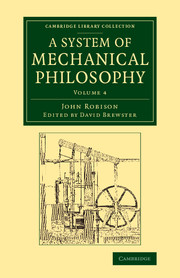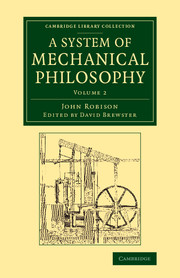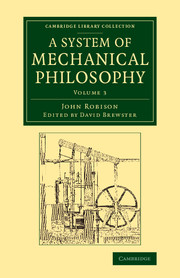55 results
Vienna, Austrian National Library, Manuscript 18810: A Repertory Study and Manuscript Inventory With Concordances
-
- Journal:
- Royal Musical Association Research Chronicle / Volume 19 / 1985
- Published online by Cambridge University Press:
- 01 January 2020, pp. 68-84
-
- Article
- Export citation
Cash Flows and Financing in Texas Agriculture*
-
- Journal:
- Journal of Agricultural and Applied Economics / Volume 5 / Issue 1 / July 1973
- Published online by Cambridge University Press:
- 28 April 2015, pp. 187-192
-
- Article
- Export citation
Inflation, Cash Flows, and Growth: Some Implications for the Farm Firm
-
- Journal:
- Journal of Agricultural and Applied Economics / Volume 12 / Issue 2 / December 1980
- Published online by Cambridge University Press:
- 28 April 2015, pp. 131-137
-
- Article
- Export citation
XXI. Notice regarding a Time-Keeper in the Hall of the Royal Society of Edinburgh
-
- Journal:
- Transactions of the Royal Society of Edinburgh / Volume 11 / Issue 2 / 1831
- Published online by Cambridge University Press:
- 17 January 2013, pp. 345-351
- Print publication:
- 1831
-
- Article
- Export citation
Telescope
-
- Book:
- A System of Mechanical Philosophy
- Published online:
- 05 June 2015
- Print publication:
- 21 August 2014, pp 403-522
- First published in:
- 1822
-
- Chapter
- Export citation
Roof
-
- Book:
- A System of Mechanical Philosophy
- Published online:
- 05 June 2015
- Print publication:
- 21 August 2014, pp 552-615
- First published in:
- 1822
-
- Chapter
- Export citation
Plate Section
-
- Book:
- A System of Mechanical Philosophy
- Published online:
- 05 June 2015
- Print publication:
- 21 August 2014, pp -
- First published in:
- 1822
-
- Chapter
- Export citation
Watch-Work
-
- Book:
- A System of Mechanical Philosophy
- Published online:
- 05 June 2015
- Print publication:
- 21 August 2014, pp 539-609
- First published in:
- 1822
-
- Chapter
- Export citation
On Rivers
-
- Book:
- A System of Mechanical Philosophy
- Published online:
- 05 June 2015
- Print publication:
- 21 August 2014, pp 369-537
- First published in:
- 1822
-
- Chapter
- Export citation
On the Resistance of Fluids
-
- Book:
- A System of Mechanical Philosophy
- Published online:
- 05 June 2015
- Print publication:
- 21 August 2014, pp 261-368
- First published in:
- 1822
-
- Chapter
- Export citation

A System of Mechanical Philosophy
-
- Published online:
- 05 June 2015
- Print publication:
- 21 August 2014
- First published in:
- 1822
Preface
-
- Book:
- A System of Mechanical Philosophy
- Published online:
- 05 June 2015
- Print publication:
- 21 August 2014, pp vii-xii
- First published in:
- 1822
-
- Chapter
- Export citation
Marine Trumpet
-
- Book:
- A System of Mechanical Philosophy
- Published online:
- 05 June 2015
- Print publication:
- 21 August 2014, pp 486-500
- First published in:
- 1822
-
- Chapter
- Export citation
Variation of the Compass
-
- Book:
- A System of Mechanical Philosophy
- Published online:
- 05 June 2015
- Print publication:
- 21 August 2014, pp 354-375
- First published in:
- 1822
-
- Chapter
- Export citation
Temperament of the Scale of Music
-
- Book:
- A System of Mechanical Philosophy
- Published online:
- 05 June 2015
- Print publication:
- 21 August 2014, pp 376-451
- First published in:
- 1822
-
- Chapter
- Export citation

A System of Mechanical Philosophy
-
- Published online:
- 05 June 2015
- Print publication:
- 21 August 2014
- First published in:
- 1822
DYNAMICS
-
- Book:
- A System of Mechanical Philosophy
- Published online:
- 05 June 2015
- Print publication:
- 21 August 2014, pp 1-158
- First published in:
- 1822
-
- Chapter
- Export citation

A System of Mechanical Philosophy
-
- Published online:
- 05 June 2015
- Print publication:
- 21 August 2014
- First published in:
- 1822
Strength of Materials
-
- Book:
- A System of Mechanical Philosophy
- Published online:
- 05 June 2015
- Print publication:
- 21 August 2014, pp 369-495
- First published in:
- 1822
-
- Chapter
- Export citation
THE ARTICLES STEAM AND STEAM-ENGINES
-
- Book:
- A System of Mechanical Philosophy
- Published online:
- 05 June 2015
- Print publication:
- 21 August 2014, pp v-vi
- First published in:
- 1822
-
- Chapter
- Export citation



